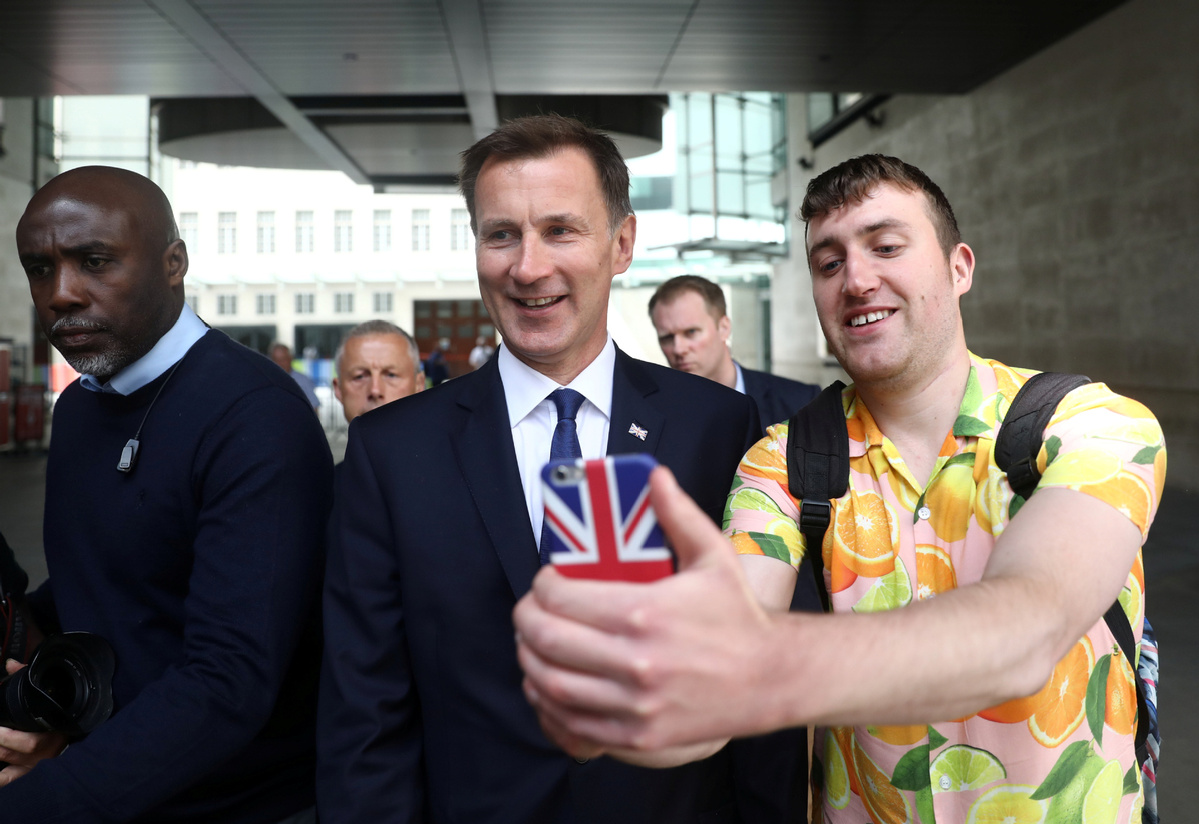Hunt claims sacrifice necessary for no-deal Brexit


Britain's Conservative Party leadership contender Jeremy Hunt has said that if he won the contest to be the nation's next prime minister he would tell businesses went bust because of a no-deal Brexit that their sacrifice was necessary.
The foreign secretary said: "At the beginning of October, if there is no prospect of a deal that can get through Parliament, then I will leave at the end of October because that is our democratic promise to the British people."
Asked if he would be prepared to see companies go bust to ensure a no-deal Brexit, Hunt replied: "I would do so but I'd do it with a heavy heart precisely because of the risks."
Asked how he would justify this position to such small business owners, Hunt said he would tell them that a no-deal Brexit was necessary to maintain the United Kingdom's image abroad as "a country where politicians do what the people tell them to do".
The comments prompted strong warnings against such policies from leading business groups.
A spokesman for the Confederation of British Industry, or CBI, said: "The case for any new prime minister to secure a good deal with the EU is clearcut. Jobs and livelihoods will depend on it."
Leaving without a deal would be "an act of economic vandalism", a spokesman for Make UK said. "We call on any and every politician advocating no deal to think carefully about the enormous harm it would do to businesses and the millions of families who rely on them."
Hunt was due to outline a 6 billion pound ($7.6 billion) pledge to the fishing and farming industries and help for small businesses in the case of a no-deal Brexit.
However, Hunt repeated that his preference is for a negotiated deal, saying that if it was very close by Oct 31 he might briefly extend the deadline to see it through.
Prime Minister Theresa May has made a thinly veiled attack on Boris Johnson's "do or die" approach to leaving the European Union on Oct 31.
Leadership candidate Johnson has said that if the EU declines to renegotiate the withdrawal agreement and remove the contentious Irish backstop, he would take the UK out of the EU without a deal on Oct 31.
The prime minister was thwarted three times in seeking to get the withdrawal agreement ratified through Parliament.
She said: "I've always been very clear that I think the best approach for the UK is to first of all ensure we're delivering on the vote that took place in 2016, leaving the EU, but that we do that with a good deal so we can do it in an orderly way.
"I still think we negotiated a good deal. I wasn't able to get a majority in Parliament for that deal. It will be up to my successor to get that majority, deliver on the vote and take us forward."
The 160,000 Conservative Party members will begin voting next week and May's successor is expected to be revealed on July 23.

































